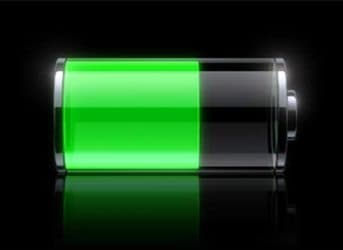Bill Gates did not become the world’s richest man by making foolish investments. Now Gates and venture capitalist Vinod Khosla, Tao Invest, Kleiner Perkins and Foundation Capital among others, are betting that the Aquion battery, invented by Jay Whitacre of Carnegie Mellon University in Pittsburgh, has a high-tech future. The Aquion battery costs the same as a lead-acid battery, but lasts twice as long.
Aquion Energy was founded in 2007. Kleiner Perkins, the first firm to invest in Aquion Energy, partner emeritus Ray Lane said, “We are expecting Aquion Energy’s commercial launch in 2014 to be disruptive to the world of stationary energy storage. It is a testimony to Aquion’s team and innovative technology that it has been able to attract these high-quality investors. The company is well positioned for impressive growth in the burgeoning global market for energy storage.”
Aquion Energy, flush with $55 million from Gates and other venture capitalists, has taken over a disused factory near Pittsburgh, where Sony TVs were once made, to begin production of the battery, with full-scale production slated to begin later this year. The factory is supposed to start shipping products to early customers by June and eventually expects to create 400 jobs by the end of 2015.
Related article: Harvard Research Team has Breakthrough on Battery Storage
The environmentally friendly battery, unlike those utilizing lead, is made of inexpensive materials including manganese oxide and water. While it functions similar to a lithium-ion battery, the Aquion battery uses sodium ions instead of lithium ones, which makes it possible to use a salt water electrolyte instead of the more expensive and flammable electrolytes used in traditional lithium-ion batteries. The battery couples a carbon anode with a sodium-based cathode, and a water-based electrolyte shifts the ions between the two electrodes during charging and discharging.
The Aquion Energy battery’s design is modular, allowing the batteries can be scaled up and down depending on how much storage is needed, with the intended clientele being power grid operators and utilities seeking for low cost and easy-to-deploy batteries to offer grid services or for coupling with renewable power farms.
For storing large amounts of power from the grid, success is “all about cost,” Whitacre says. In the future, Aquion Energy is to partner with major power giants like Siemens, who in Oct. 2013 purchased a shipment of Aquion Energy grid batteries to test with Siemen’s in-house power inverter technology. Aquion Energy hopes that if Siemens likes their battery technology and it performs as expected, Siemens could eventually bundle the batteries with its power grid infrastructure and sell it to customers like solar farm developers.
Cost?
Related article: Tesla Completes Coast-to-Coast Section of Free Supercharger Network
Aquion Energy’s CEO Scott Pearson said that in several years when the battery has been manufactured at a commercial scale, prices could drop to $300 per kilowatt hour, roughly a third of the cost of some of the more expensive lithium ion battery grid products currently on the market, adding that even now at the pilot scale that its batteries are “not radically above that” $300 per kwh level.
A low cost and easily installed grid energy storage option could level the playing field for renewable energy in its struggle against more traditional hydrocarbon-fired thermal power plants. The next several years will see solar and wind farms constructed at a record pace worldwide, opening up tremendous market opportunities for reliable and low cost batteries for use in such power applications as renewable energy integration, power grid load shifting and ancillary services like frequency regulation.
Not that Aquion Energy has the field to itself, as it will be competing with a number of companies, including GE and Fluidic Energy, which are also manufacturing innovative batteries for connection to the grid.
Gates as a techie has clearly done his homework, and is betting on Aquion Energy. It will be interesting to see if his buddy Warren Buffett does as well.
By. John C.K. Daly of Oilprice.com



















Warren Buffet is invested in BYD.com which produces LiFePO4 batteries which usually should have even a few more cycles.
-> Target cost 300 USD seems a little expensive for real comptetitive edge, even if we talk about energy storage "systems".
Jörg Dürre
Company: biomotor GmbH
Fantastic article and a fantastic technology, thank you for the article.